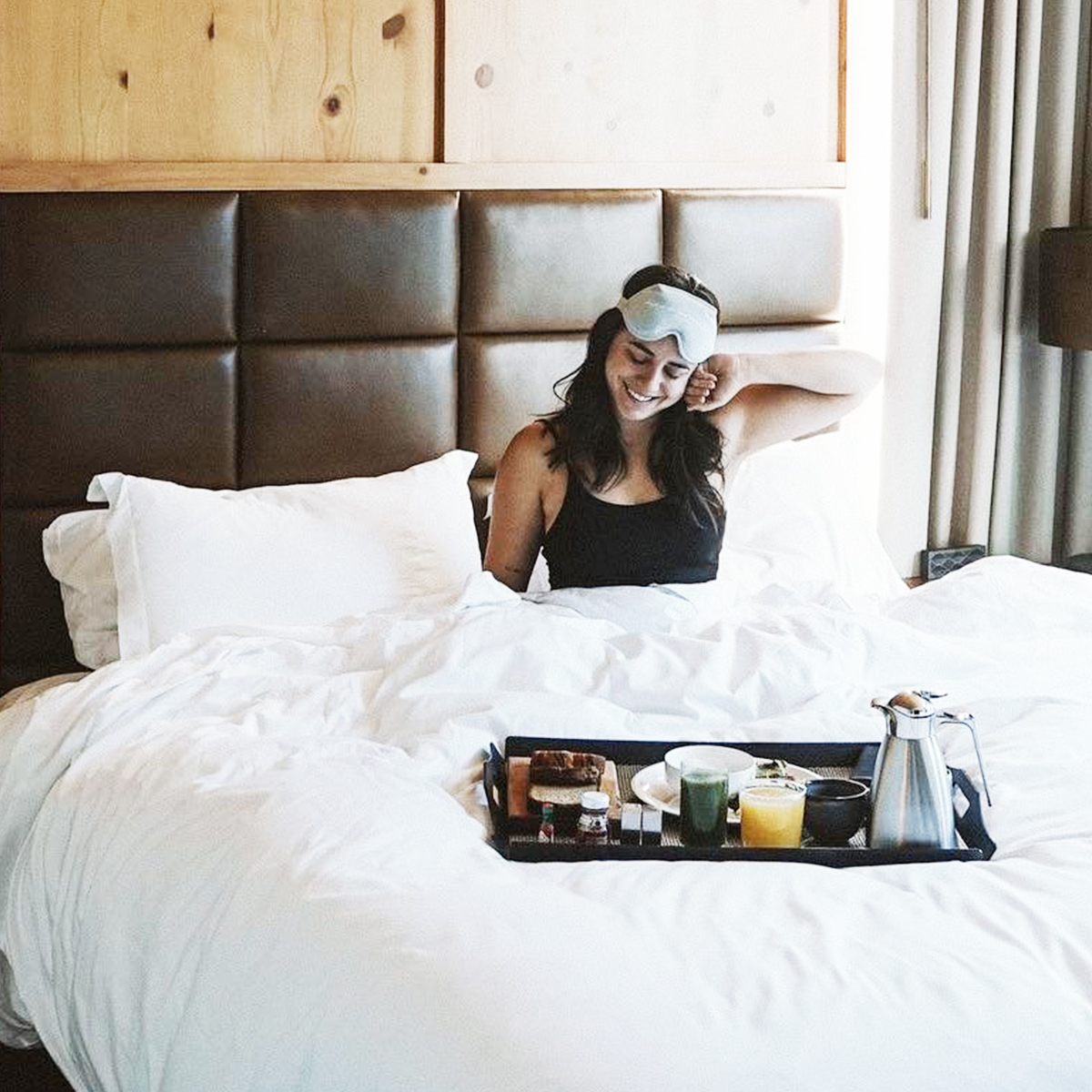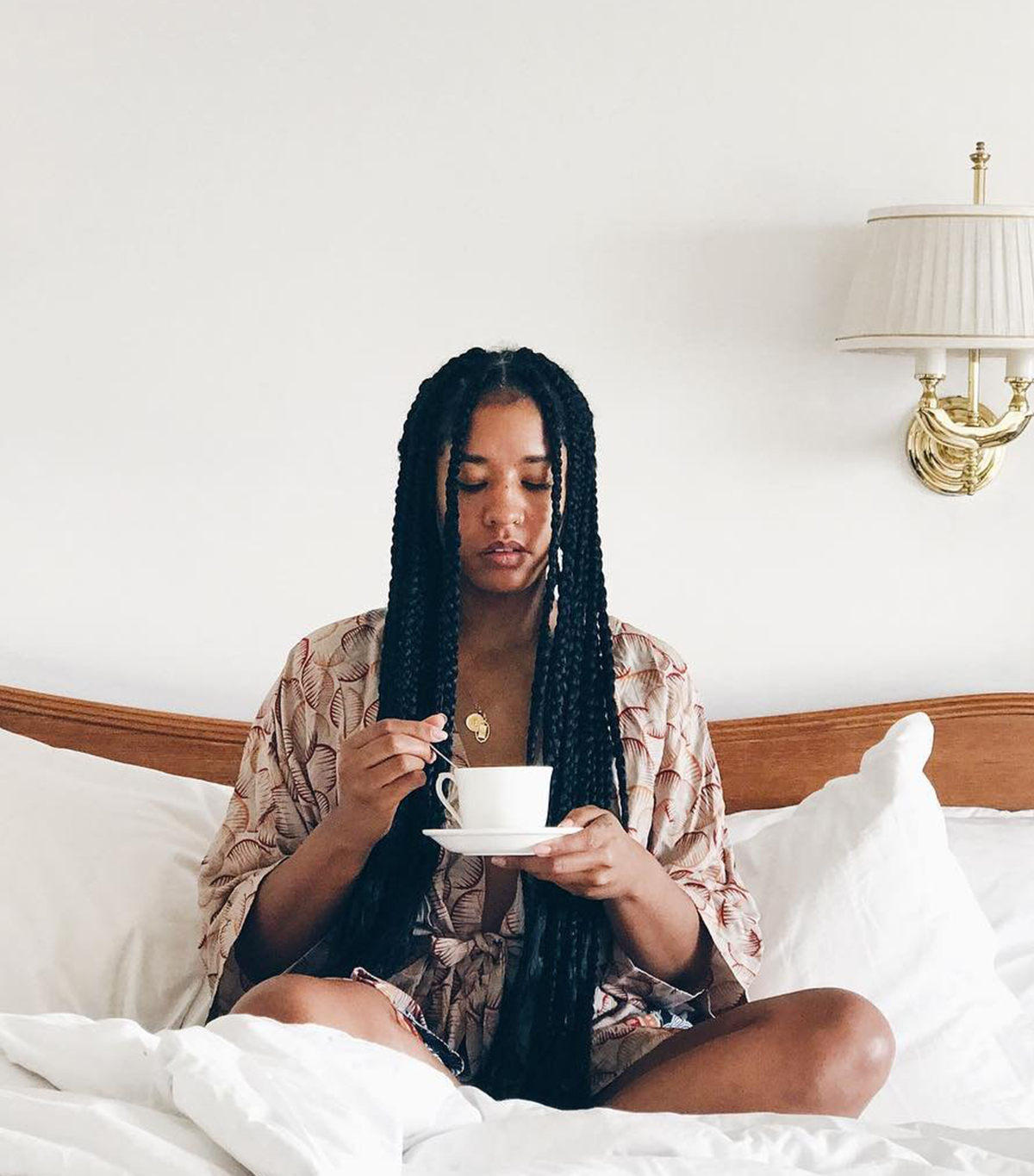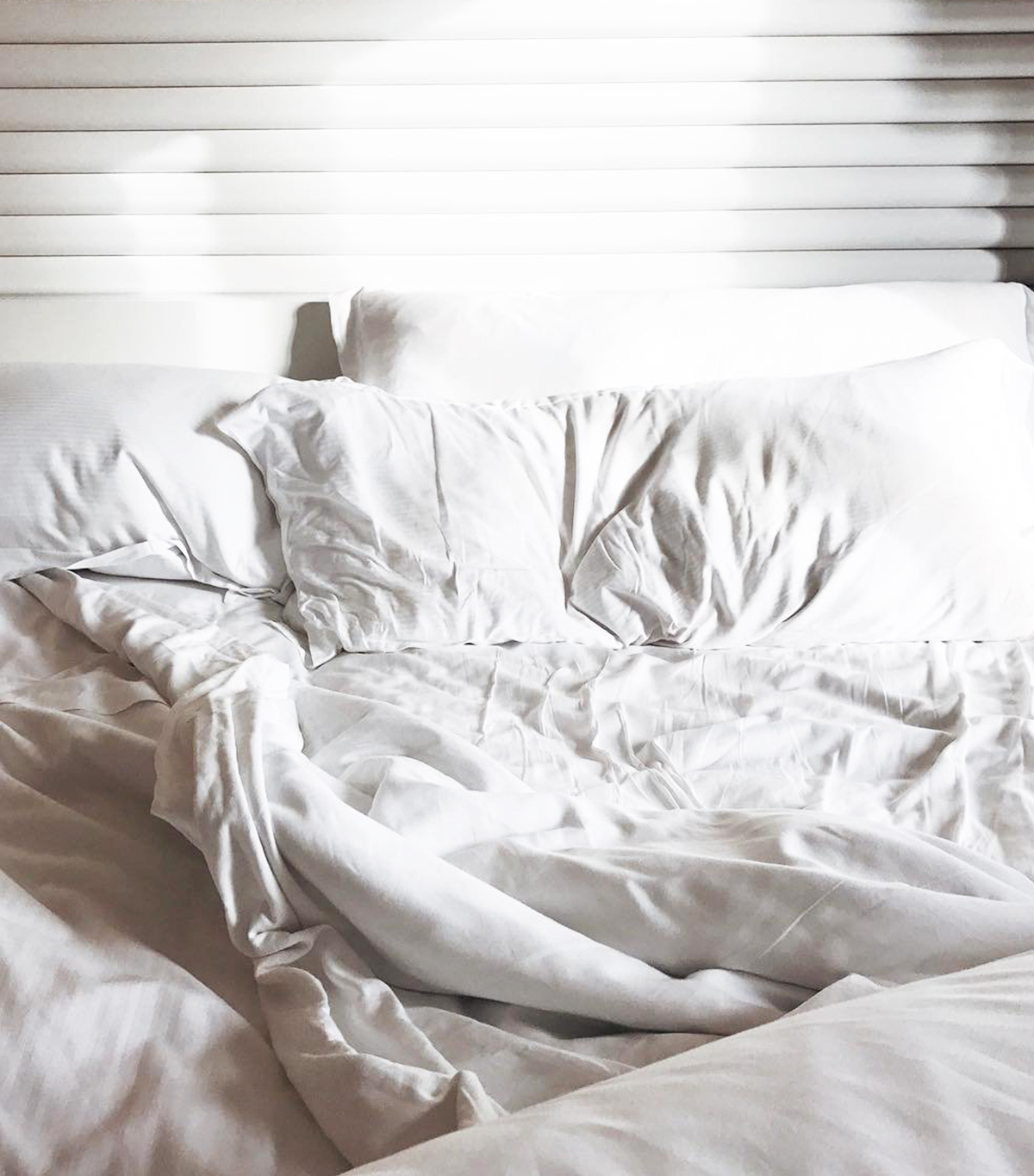This Is What Happens to Your Body When You Keep Hitting Snooze


In the moment, there's nothing more satisfying than silencing your phone, turning it over, and dozing off again—especially when it's Monday morning, it's frigid outside, and you'd sooner skip breakfast than leave your warm cocoon of blankets. But this small act of rebellion could ultimately cost you more than a few minutes of your morning routine. By hitting the snooze button, you're interfering with your body's natural wake mechanisms, which actually sets you up for more exhaustion during the day ahead.
"When you let yourself fall back asleep, you're tricking your body into thinking it's going back into sleep mode," explains Adam Tishman, sleep expert and co-founder of Helix. "When your alarm goes off again, your body and brain are confused, resulting in that foggy feeling called sleep inertia. Sleep inertia can stay with you throughout the day, making you actually feel more tired throughout the day."
And sleep inertia probably isn't even the only source of your exhaustion—hitting snooze can also significantly impact the rapid eye movement part of the sleep cycle, the time during which our bodies are most inactive and our brains are most active. (REM sleep is when we dream.)
When we wake up, the body typically has to transition through other sleep stages to fall back into REM sleep, the final stage of the sleep cycle—which is exceedingly difficult if you're constantly hitting snooze. "Throughout the night, your body switches in and out of REM, with REM increasing throughout the night as morning approaches," explains Tishman. "If you set your alarm early with the intention of pressing the snooze button, you deprive yourself of receiving the full restorative benefits of REM sleep as it's much harder to fall back into REM sleep once your alarm has gone off."
But if breaking the habit seems easier said than done, it's probably because we can actually become addicted to hitting snooze. "Your body and brain get used to your sleep and waking patterns," says Tishman. "Once the habit is formed, it can be difficult to break."
Difficult but not impossible, especially if you're armed with a few expert-approved tips. Keep scrolling for Tishman's pointers for waking up the first time your alarm rings—and in turn feeling much better throughout the day.

Get enough sleep.
It sounds obvious, but it's also job number one if you want waking up to feel a little more painless. "More often than not, it is sleep deprivation (lack of sleep) that is causing that intense feeling of exhaustion when your alarm goes off in the morning," says Tishman. Aim for seven or eight hours minimum, and you'll be amazed by how much better you feel.
Be consistent.
I can certainly attest to the value of establishing a routine: When I started going to bed at (generally) the same time each evening and waking up at 7 o'clock on the dot—even on weekends—soon, I didn't even need an alarm: My body just knew to wake up at that time.
"By going to bed and waking up at similar times each day and night, your body will get used to a rhythm helping you fall asleep and wake up each day and night," says Tishman. "Instead of feeling groggy in the morning when the alarm goes off, eventually you will start to feel refreshed."

Place your alarm clock out of reach.
"Morning you" might hate you for a while, but it'll be well worth it once you kick the habit. "Putting your alarm clock (or smartphone) our of reach will force you to get out of bed," says Tishman. "Once you're up, don't go back to bed. Take a shower, drink some water, wash your face, brush your teeth, and start getting ready for your day."

Power down your electronics before bed.
You knew this already, but we'll say it louder for the people in the back. "Any light at night, especially the blue light emitted by electronic devices, energizes our brains making it more difficult to fall asleep," says Tishman. "By exposing your brain to blue light before bed (think cell phones, laptops), you risk delaying your sleep cycle and disrupting deep sleep when your alarm goes off."
It ultimately comes down to perfecting your sleep hygiene with the knowledge that you'll thank yourself later.
Next up: One of our editors tries acupuncture to see if it really works..
This article is provided for informational purposes only and is not intended to be used in the place of advice of your physician or other medical professionals. You should always consult with your doctor or healthcare provider first with any health-related questions.
